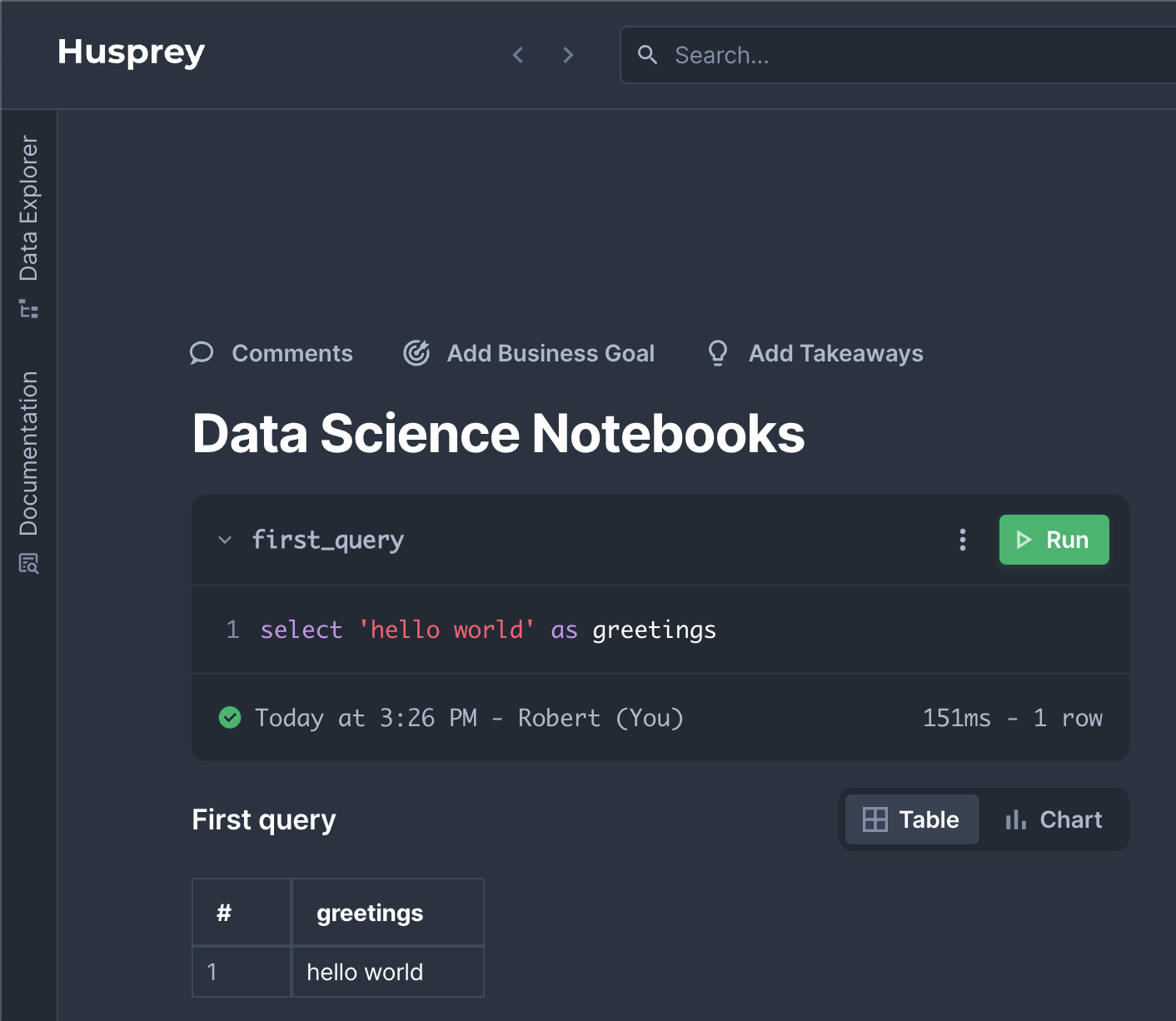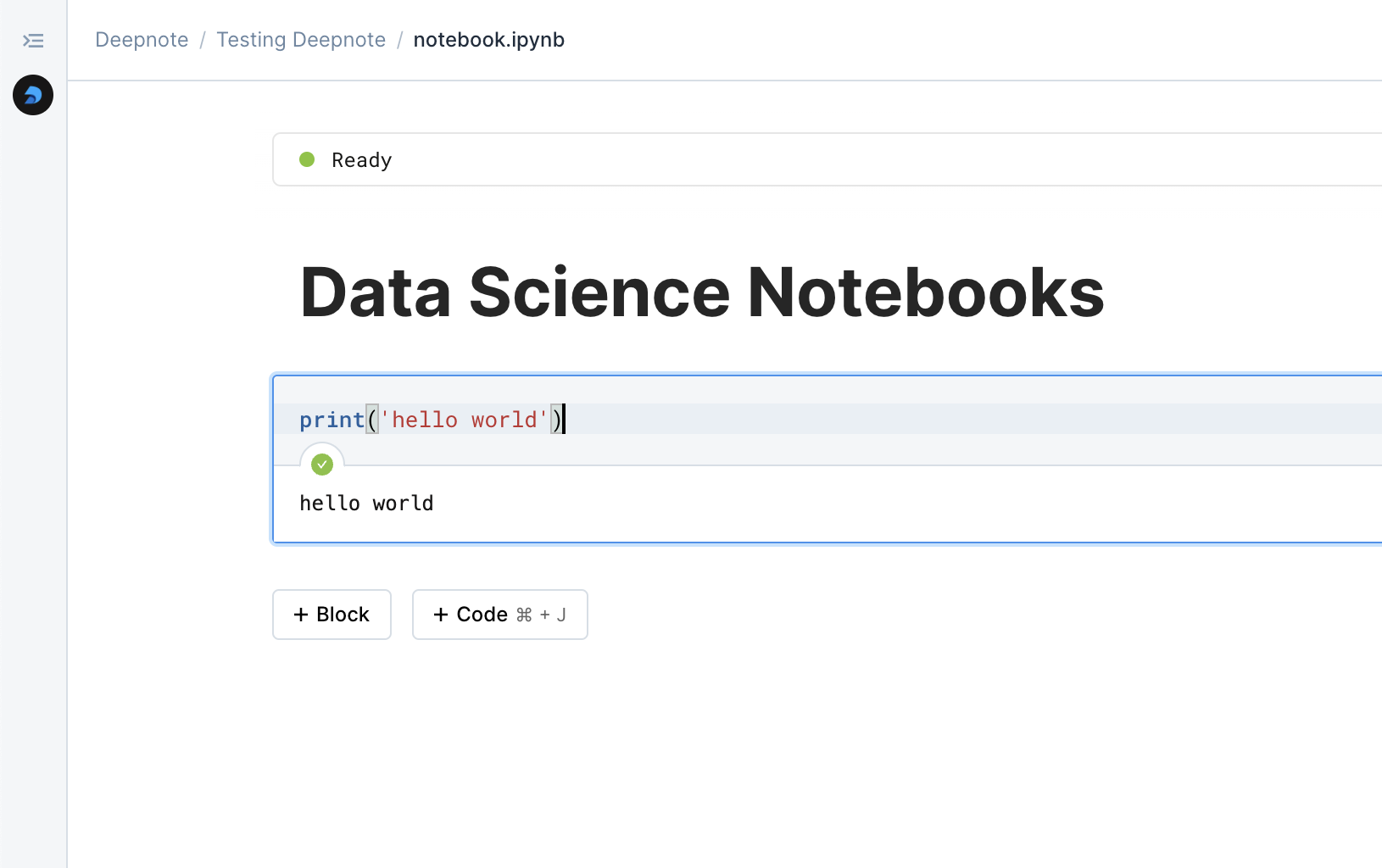

Husprey

Comparing two data science notebooks.






In the evolving landscape of data analytics platforms, Husprey (now part of Collibra) and Deepnote represent different approaches to data workflows. While both platforms offer notebook-based environments, their focus and capabilities serve distinct needs in the data ecosystem.
Husprey was developed as an integrated SQL data notebook platform, focusing specifically on SQL workflows and analytics teams. Now part of Collibra, the platform emphasizes SQL-first data analysis and collaboration within the data analytics space.
Deepnote takes a broader approach to data science workflows, supporting multiple programming languages and providing comprehensive collaboration features. The platform emphasizes real-time collaboration and integration with various data tools while maintaining professional-grade features.
Husprey specializes in SQL workflows, providing features specifically designed for SQL-based analysis. The platform's notebook environment is optimized for SQL queries and data exploration, with particular attention to the needs of analytics teams working primarily with SQL.
Deepnote offers a more comprehensive environment supporting multiple languages, including SQL, Python, and R. The platform's flexibility allows teams to combine different tools and approaches while maintaining collaborative capabilities.
Husprey's workspace is designed specifically for SQL analytics, with features tailored to SQL query development and data exploration. The platform focuses on making SQL workflows more efficient and collaborative within analytics teams.
Deepnote provides a more versatile environment that supports various data science workflows. The platform combines notebook functionality with modern collaboration features and integrations, creating a comprehensive workspace for different types of data work.
Husprey, especially as part of Collibra, provides strong integration with enterprise data sources and governance frameworks. The platform's SQL-first approach aligns well with traditional enterprise data workflows.
Deepnote offers extensive integration capabilities, connecting to various data sources and modern data tools. The platform's architecture supports both traditional and cloud-native data workflows, providing flexibility for diverse team needs.
Husprey focuses on collaboration within SQL-based analytics teams, providing features for sharing and collaborating on SQL notebooks and analyses. The integration with Collibra enhances its enterprise collaboration capabilities.
Deepnote emphasizes comprehensive real-time collaboration with features designed for modern data teams. The platform enables simultaneous editing, commenting, and version control, creating an environment where teams can work together seamlessly.
Husprey serves
Deepnote suits:
The decision between Husprey and Deepnote often reflects specific workflow requirements and team composition. Teams primarily focused on SQL analytics and working within the Collibra ecosystem might find Husprey's approach more aligned with their needs.
Organizations requiring support for multiple programming languages and comprehensive collaboration features might find Deepnote more suitable. Its combination of versatility and modern features creates an environment well-suited to contemporary data science work.
Husprey and Deepnote serve different needs in the data platform ecosystem. Husprey excels in providing a specialized environment for SQL-based analytics, particularly valuable for teams working within the Collibra ecosystem. Its focus on SQL workflows makes it particularly effective for traditional analytics teams.
Deepnote offers a more comprehensive platform supporting various data science workflows and programming languages. Its real-time collaboration features and broad integration capabilities make it particularly valuable for teams requiring flexibility and modern collaboration tools.
Understanding these distinctions helps ensure you select the platform that best supports your specific use cases while providing the necessary tools for team success.